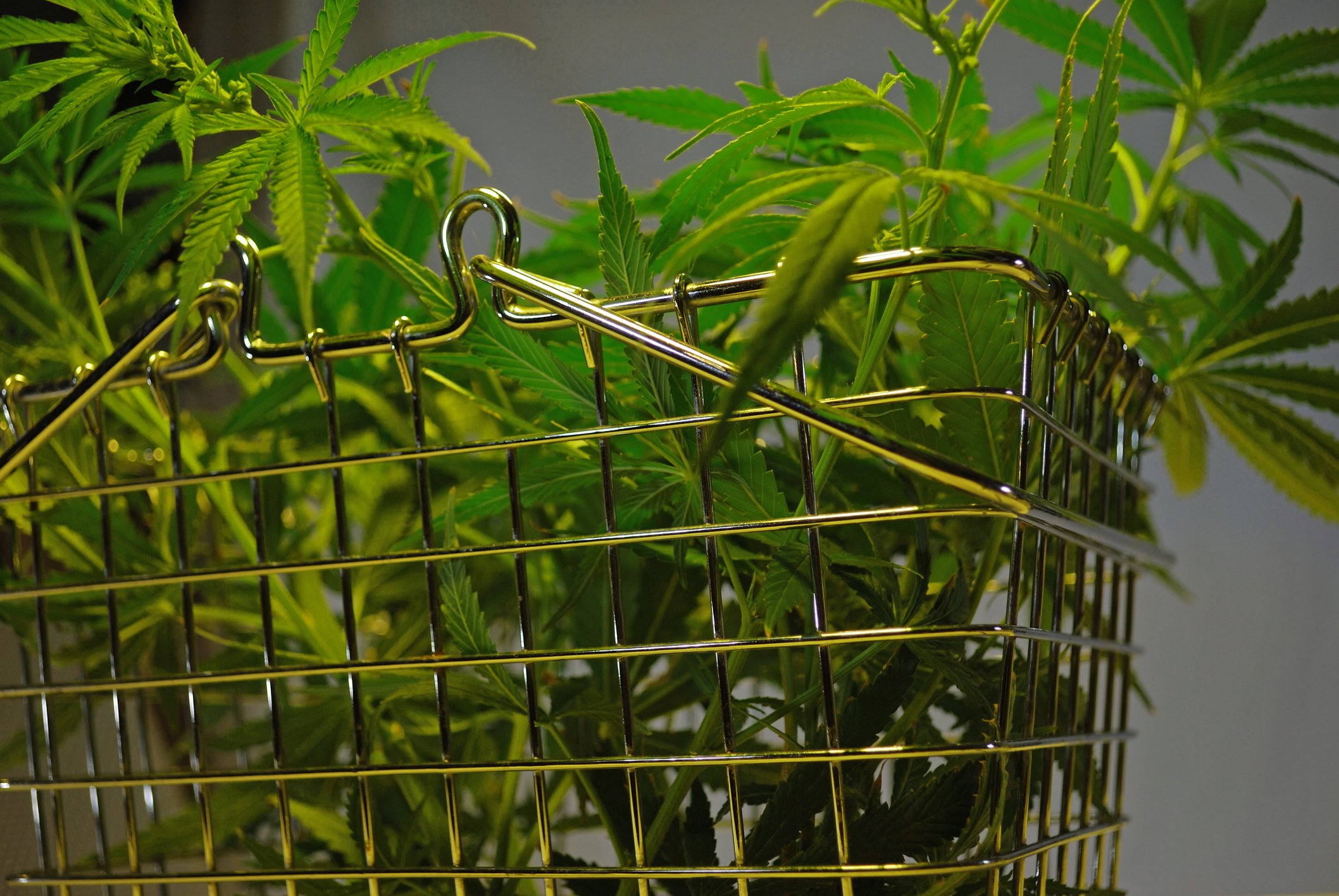To say that marijuana stocks have been volatile would be a mild understatement. For years, pot stocks were practically unstoppable, with the multiyear run leading to numerous triple- and quadruple-digit gainers. But since the end of the first quarter, most cannabis stocks have shed 50% or more of their value.
As is commonplace with next big thing investments, the North American cannabis industry is contending with its version of growing pains. Supply issues in our neighbor to the north, along with high tax rates in prominent U.S. states, have combined to disappoint investors. Yet the long-term outlook for the marijuana industry remains bullish, with Wall Street forecasting a fivefold to 18-fold increase in worldwide sales over the next decade.

Image source: Getty Images.
Diversification isn't this ETFs strong suit
In other words, cannabis stocks offer a lot of promise, but there's also a lot of inherent risk in purchasing individual stocks. This should, in theory, make marijuana-focused exchange-traded funds (ETFs) exceptionally popular with more risk-averse long-term investors. But one of the odd quirks about cannabis ETFs is that they often lack the diversity that investors are seeking when buying into a basket fund.
Take the Horizons Marijuana Life Sciences ETF (HMLSF +2.09%) as a perfect example. The Horizons Marijuana Life Sciences ETF was the very first ETF to debut that was focused on cannabis. With more than two years of purchases and rebalances under its belt, the fund now holds a stake in 63 different pot stocks, which is up from closer to one dozen when it debuted in April 2017.
With a reasonable net expense ratio of 0.75%, investors would probably surmise that the Horizons Marijuana Life Sciences ETF is spreading their money around nicely between direct and ancillary players. However, a deeper dive shows this not to be the case. Of the $383 million in invested assets as of last week, the Horizons Marijuana Life Sciences ETF had 69% of its money tied up in just eight pot stocks, as follows:
- Cronos Group: 10.59% of net assets
- Canopy Growth (CGC 1.35%): 10.59%
- GW Pharmaceuticals: 9.8%
- Aurora Cannabis: 9.21%
- Aphria: 8.14%
- Tilray (TLRY +0.00%): 8.01%
- Scotts Miracle-Gro (SMG 2.05%): 6.26%
- Charlotte's Web: 6.04%
Not only is the fund highly concentrated in just a few companies, but you'll also want to take note of a few other factors that stand out.

Image source: Getty Images.
Growers, growers, and more growers
First, inclusive of HEXO (HEXO +0.00%) and OrganiGram, which round out the ETF's top-10 holdings by weighting, as well as the other four-dozen-plus smaller investments, it has about 62% of its investments in Canadian growers. While having access to growers is a direct means of participating in the green rush, it's surprising just how much weighting the fund has placed in this particular niche of the industry. And it's because of this grower focus that the Horizons Marijuana Life Sciences ETF can expect to be hit pretty hard in the quarters to come.
You see, regulatory and procedural issues are expected to continue weighing on supply for the foreseeable future. Health Canada has been unable to keep up with a huge backlog of cultivation and sales licensing applications, with select provinces also torpedoing the pot industry with their slow rollout of physical dispensaries. With few channels to purchase legal cannabis, many consumers have been choosing to stick with illicit providers.
How do we know this? HEXO already told us. In the company's fourth-quarter operating results, HEXO cited the slow rollout of physical dispensaries, falling per-gram cannabis prices, and delays in bringing derivative products to market, as the trio of reasons behind its weaker-than-anticipated sales. HEXO's problems aren't unique to the company, either, meaning Cronos Group, Aurora Cannabis, Canopy Growth, and other major growers can expect the same challenges. Though these problems are fixable, they're going to take time to resolve.

Image source: Getty Images.
Profits are a rarity with this fund
It's also worth pointing out that while profitability is, admittedly, pretty rare across the cannabis space, the Horizons Marijuana Life Sciences ETF does a pretty good job of dancing around significant investments in profitable companies.
You'll note that, with the exception of cannabidiol (CBD) giant Charlotte's Web and Scotts Miracle-Gro, whose subsidiary Hawthorne Gardening provides a variety of lighting, soil, and nutrient solutions to the North American medical marijuana market, none of these largest holdings are anywhere near becoming profitable. Even Scotts Miracle-Gro should come with an asterisk given that more than 80% of the company's revenue is derived from its traditional lawn and garden business, rather than its burgeoning cannabis-focused subsidiary.
Comparatively, Canopy Growth and Tilray, two of the most prominent Canadian growers, and top-tier holdings in the Horizons Marijuana Life Sciences ETF, are nowhere near profitability, and may not be so until 2022. Canopy Growth has seen its share-based compensation soar in recent quarters, largely because now-former co-CEO Bruce Linton believed that giving employees long-term-vesting stock was a smart way to keep them loyal to the company. However, handing over this stock has made it virtually impossible for Canopy to get anywhere near profitability.
Tilray, on the other hand, isn't losing as much money as Canopy Growth, but it lacks a real growth plan. In March, the company announced plans to de-emphasize future investments in Canada, which is an odd decision to make with the recreational pot market in Canada just getting off the ground. With Tilray refocusing on Europe and the U.S., it means higher expensing is likely while it gets much needed infrastructure in place.
In short, the Horizons Marijuana Life Sciences ETF could prove to be nearly as volatile as most individual Canadian pot stocks... only it'll come with an annual 0.75% expense to boot.








